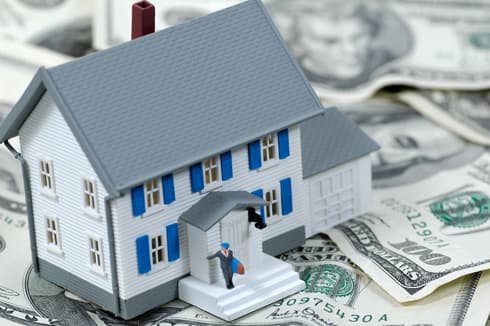4 Reasons to & 3 Reasons Not to Refinance Your Mortgage
Is now the time to refinance your mortgage? Let us explore the pros and cons of refinancing in today’s bumpy mortgage market.
Home mortgage rates fluctuate, and lately have hovered at attractive rates. Even with the turbulence in the mortgage market there is an ongoing interest in mortgage refinancing. Regardless of the macro economic trends, homeowners must consider the pros and cons of refinancing in their situation before they sign up for a new deal on a home loan.
Some homeowners are sitting on adjustable rate mortgages (ARMs) wondering if now is the time for a mortgage refi into a fixed-rate loan. They may worry -- and rightly so -- about payments increasing, especially in an atmosphere where home values decline. Other homeowners may want to use cash from their equity to pay for kids' college tuition, take advantage of lower prices to put a down payment on a second home, or remodel existing homes.
Predicting mortgage rates involves researching a complex set of variables, including market liquidity, the status of inflation, financial markets, and the state of U.S. currency.
In light of the confusing market, homeowners should consider the following tips to help in deciding if they would be wiser to get a mortgage refi now or keep their current mortgage.
Pros: Four reasons to refinance your mortgage
Consider a mortgage refinance now if one or more of these four conditions apply to you:
- ARM rates are rising above market rates. As interest rates increase, ARM loan payments do too. Homeowners concerned about payments, and whose rate is higher than current fixed mortgage interest rates, might consider a mortgage refi. Many economists forecast basically stable interest rates, but with the amount of uncertainty in financial markets, there's no telling. You can begin the process with a mortgage lender and have him or her watch rates for you to establish a good time to lock your loan.
- Refinancing is affordable. Refinancing involves expenses that can total around 2 percent of the total loan amount. Typically, financial advisers suggest a mortgage refi is worthwhile if the savings on payments will pay for the refinancing costs within two years. Homeowners can calculate their own "break-even" date by dividing the up-front cost (the figure on the Good Faith Estimate form) by the anticipated monthly savings. The answer is the number of months it will take to pay off the refinance -- and sooner is better.
- You've grown roots. Homeowners who plan to stay in their home for a long period of time might find that a mortgage refi makes sense. If you have a long term left on your mortgage payments, and your rate is higher than market rates -- or you have an ARM or balloon-payment loan and want the security of a fixed rate -- you'll likely meet the "break-even" criteria outlined above.
- One loan is better than two. For homeowners with a first mortgage as well as a second mortgage with a high rate, a mortgage refi can combine the two loans into one. Second mortgages usually have adjustable rates. If the second mortgage has a hefty balance, today's borrowers might be better off rolling the two loans into one.
Cons: Three reasons not to refinance your mortgage
Wait to refinance your mortgage if one or more of these three conditions apply to you:
- Your credit isn't stellar. Those who have made credit mistakes (such as late payments, especially on the mortgage) will benefit from spending a few months cleaning up their act before applying for a mortgage refi. Paying on time and reducing or eliminating credit card balances will earn a better refinanced mortgage rate.
- Life is in flux. Homeowners should not invest in a mortgage refi if they might sell the home within a year or two. Divorce, job relocation, or even a big raise might make you rethink your residence. Refinance when your life is more stable.
- The clock is ticking on private mortgage insurance (PMI) payments. Most lenders require PMI for borrowers whose mortgage balance is greater than 80 percent of the price of their home. When the loan value falls below 80 percent of the home's value, borrowers may be able to request elimination of PMI. Some loans may even require borrowers to refinance to eliminate PMI.
Removing PMI will give most borrowers an immediate monthly payment reduction of $100 to $200 (the mortgage statement lists the specific payment). You may decide to hold off on a mortgage refi if you anticipate falling below the 80 percent loan-to-value mark soon. In this case, waiting a few months to refinance could mean significant savings by eliminating your monthly PMI payments.
A mortgage refi can be a good way to get a better mortgage, but it isn't the be-all and end-all for every borrower. Take time to educate yourself and weigh the pros and cons of your situation before making a decision.
Bills.com Resources That Save You Money
- You might reduce your monthly payments by refinancing your mortgage. Get no-cost, online mortgage refinance quotes from up to four prequalified lenders.
- Buying a home? Get no-cost quotes online for competitive, fixed-rate mortgages from up to four providers.
- Reduce your debt up to 50%. Get matched with pre-qualified debt consolidation experts.
- Get a free credit report. Find a professional to correct your credit report. Apply for a new credit card. Visit the Bills.com Credit Card Center.
